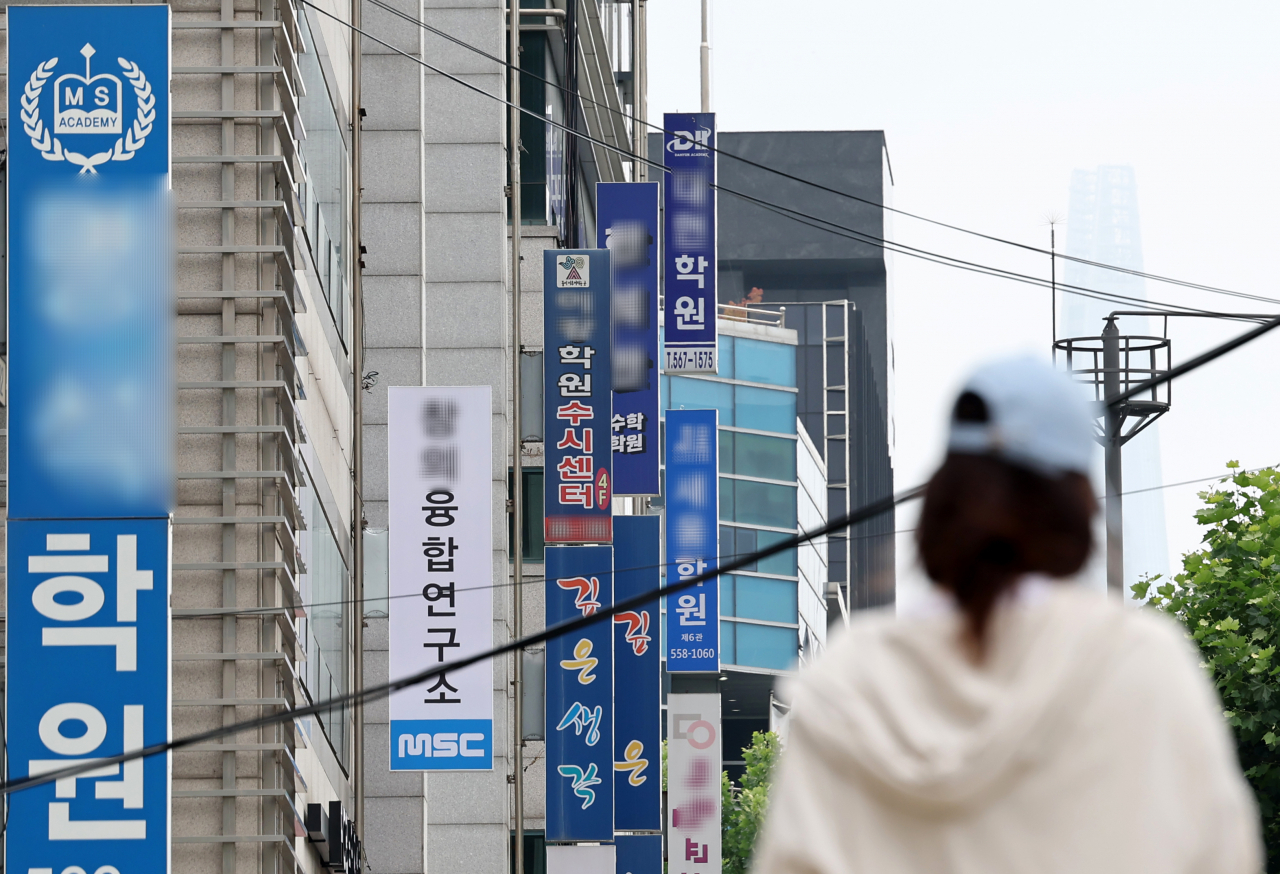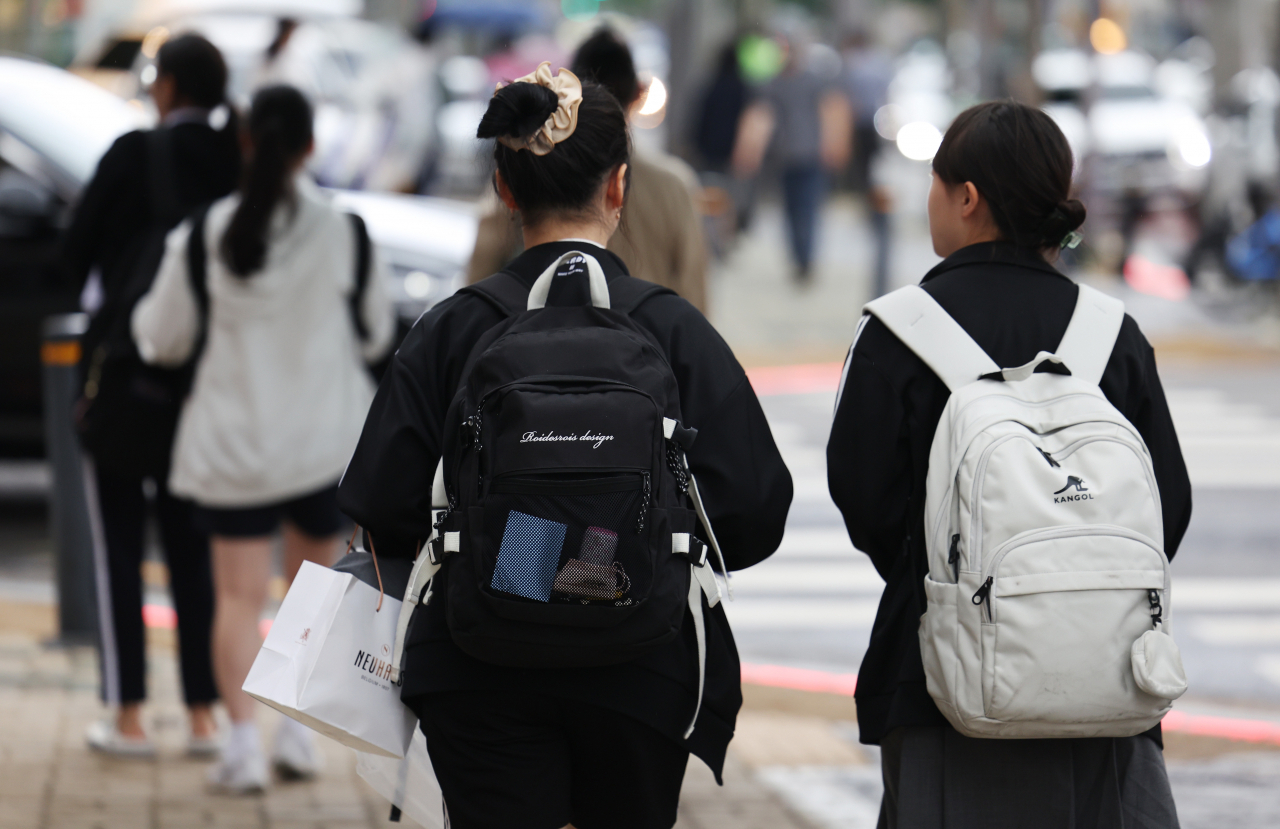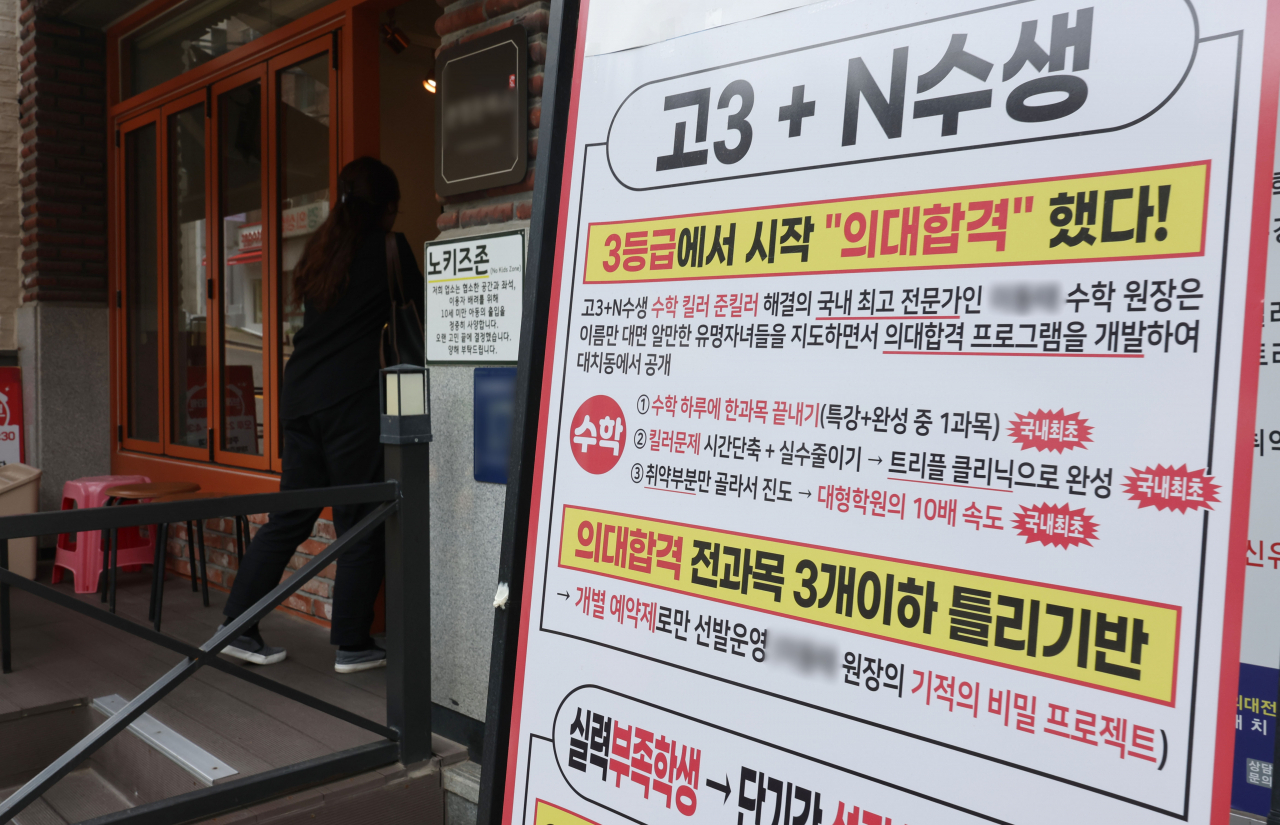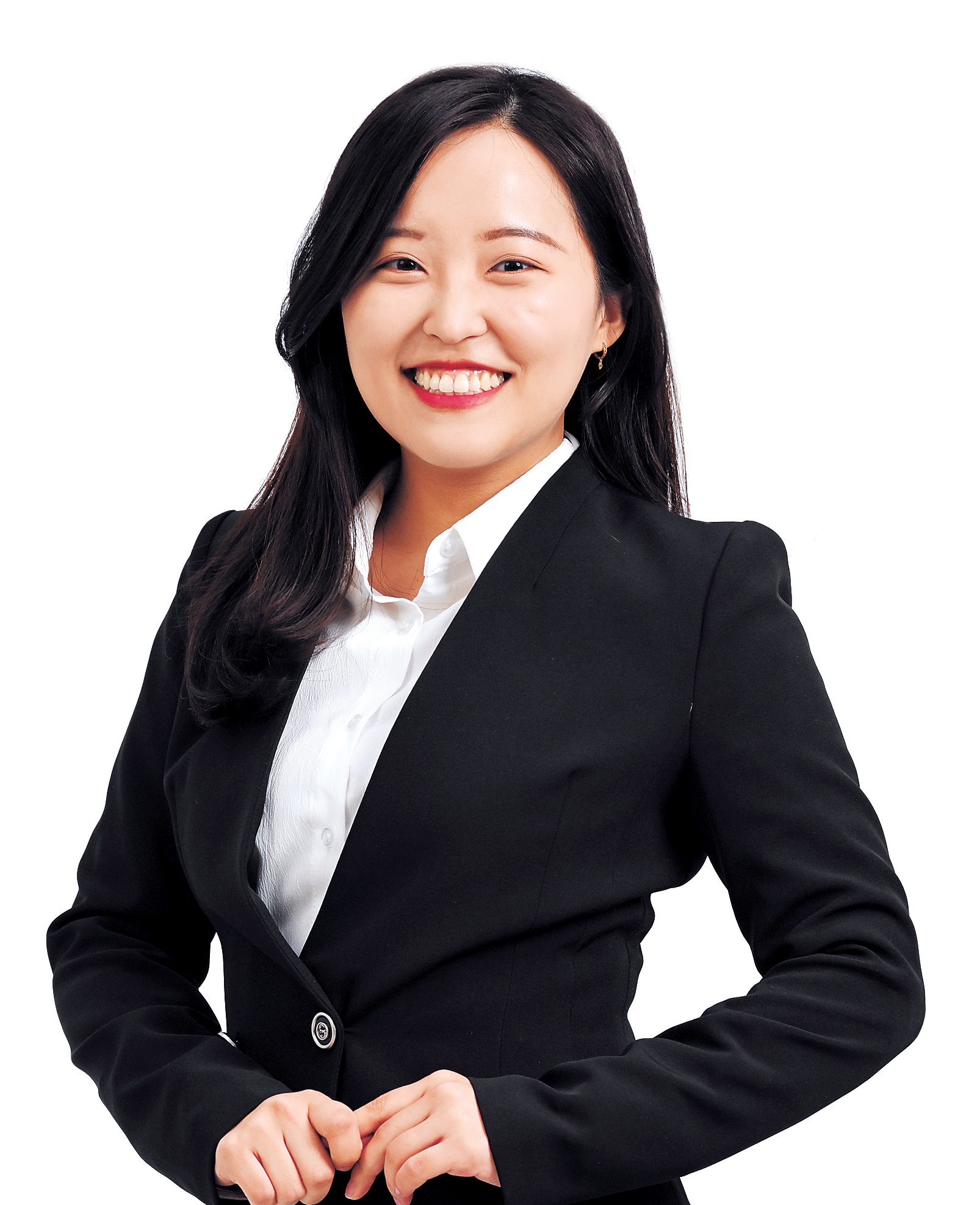Thriving on anxiety: Korea's multibillion-dollar hagwon industry
Low-income families spend as much on private cram schools as food; critics blame their success on 'anxiety marketing'
By Lee Jung-jooPublished : June 28, 2023 - 15:57

After a brief break in the afternoon, Lee Si-hyun, a first-year high school student in Seoul, gets ready to go to hagwon -- after-school cram schools where she spends her evenings studying for Korea's college entrance exam, which is coming up in two years’ time.
“I go to a total of four hagwon -- for Korean, English, math and science -- on weekdays and weekends," she said. "My friends go to the same number of hagwon or more.”
For Lee and her friends, spending time at hagwon has become a regular fixture in their teenage lives. Although they do not particularly enjoy being there, they go voluntarily.
A report released on March 7 by the Ministry of Education and Statistics Korea based on data collected Jan.-Dec. 2022 said high school students from households with a monthly average income of 8 million won ($6,100) or more spent an average of 9.4 hours per week at hagwon. The monthly average expenditure on private education for such households was 648,000 won.
By contrast, for households with incomes of less than 3 million won per month, the time spent on private education was limited to 4.3 hours. However, these households spent almost the same amount on private education as they did on food.
The monthly average expenditures on private education for households at the bottom of the five-tier, income-based categorization with children aged 13-18 were 482,000 won – only slightly higher than the 481,000 won these families spent on food.
Lee said she leans on private education due to the perception that it will help her get into a good university and thus result in a “better life.” She defines a "better life" as one with a job that gives her a stable income.
"If I study hard now, I'll be able to get into a good university, which will guarantee economic stability with a well-paid job," she said. "So I've decided it's best for me to study as much as I can now."
Fueled by intense competition
Gu Bon-chang, head manager of the civic group A World Without Worry About Private Education, said the hagwon industry is a byproduct of the intense competition among students here who all want to get into top universities.
According to the Korean Educational Department Institute’s 2021 report on “Generational Perceptions on Education,” the most common reason for choosing private education was “to get ahead of others.”
Parents also believe that paying hagwon fees is a sort of investment they make before the window of opportunity to do so closes.
"Life is hard and full of uncertainty. If only my daughter can get a good job in the future by getting into a good school -- I guess this is the right investment for her," said Park Ji-eun, the mother of a high school senior student in Seoul.

With Koreans relying heavily on hagwon, South Korea's private education market has undergone a dramatic transformation in recent years. Some popular hagwon have built business empires worth millions of dollars combined. According to government data, parents in Korea spent a total of 26 trillion won on private education last year nationwide, but experts say the market has grown far more than that, citing their market value and numerous other related businesses.
There are a total of 31 companies listed in the local stock market's education category, with 12 of them having private education as their main source of revenue. The market value of Megastudy, one of Korea's biggest hagwon companies, was estimated at 669 billion won alone as of Tuesday.
Slick marketing tactics
Bigger and more prestigious hagwon employ lecturers that become famous for their teaching styles and abilities to greatly improve their students’ grades. These lecturers, known as “star lecturers,” are key marketing tools that lure various students into signing up.
Some hagwon also use “anxiety marketing," in which phrases like “If not now, when?" are used to evoke the sense among parents that they must enroll their children at hagwon before it’s "too late." Meanwhile, some hagwon make grand claims that are difficult to verify, such as “the hagwon that sent the largest number of students to major universities in Seoul.” According to the Seoul Metropolitan Office of Education’s 2021 report, “Online Monitoring of Hagwon Advertisements,” more than 100 hagwon in Seoul were caught that year by the Korea Internet Advertising Foundation for false or misleading advertising, resulting in warnings and fines.
Jeon, a parent who wished to be identified only by her surname, recalled how pressured she felt by hagwon when her son was a high school senior to prepare him for the Suneung, the national college scholastic ability test. “I went to a briefing session hosted by the hagwon my son was attending. They kept pressuring me to enroll him into their ‘Last-minute Suneung Prep Class,’ saying that he wouldn’t be able to score as well on the Suneung compared to the other students who take the course,” she said.

To counter irregularities in hagwon operations including false advertising, on June 22, the Education Ministry announced it will be accepting reports on its website until July 6. Through new education reforms, the government says it hopes to strengthen public education so that students no longer have to rely on hagwon or other forms of private education to achieve academic success.
The government has specifically pointed its finger at hagwon for increasing the Suneung’s difficulty level. It argues hagwon teach their students more than regular public schools -- resulting in test makers creating harder Suneung questions to match -- then market themselves to students claiming they won't do well on the test unless they take their classes. It has also criticized some former test makers and teachers who allegedly sold past test questions to hagwon.
According to reports quoting authorities on Wednesday, the nation's tax agency has sent investigators to Megastudy headquarters without any notice, a day after the presidential office said legal actions can be taken on private education institutions if needed.
But according to a lecturer at a renowned Suneung prep hagwon in Seoul who wished to remain anonymous, it is irresponsible to blame hagwon for increasing the Suneung’s difficulty level. “Hagwon lecturers and schoolteachers are different because while lecturers can spend the entirety of their time planning their lessons and educational material, teachers have other administrative responsibilities and almost no support for planning out their course material,” he said. “This creates gaps between how classes are taught at school and in hagwon, and makes it more likely for students to rely on their hagwon teachers. The public education system needs to be changed first before criticizing hagwon.”
Far more than just hagwon
In addition to hagwon, the country's private education market has various other types of businesses capitalizing on the common desire of high school students to get good test scores and get into good universities.
Not only are there online courses and private tutoring lessons, but also there are "supervised study rooms," which manage students through a meticulous study schedule catering to each student's needs. Some study rooms provide students with a space to study and also monitor the students to make sure they aren't distracted from their studies. They also provide college admissions consultation services and more -- all for 650,000 won or more per month.
For a cheaper price, students can also go to an ordinary study room where they aren't supervised, or to a study cafe, which will have a more modern aesthetic compared to study rooms and provide drinks like coffee and tea for a fee.
Daechi-dong -- a neighborhood in Seoul's Gangnam-gu dubbed the mecca of private education in the country -- is packed with commercial businesses that cater to student needs while studying. Marketed toward the stressed out teens, services in the area include restaurants that offer menu options ranging from home-cooked-style to fast food; hairdressers; indoor pools, tennis courts and gyms with personal trainers; and even medical clinics that offer psychological counseling.






![[Weekender] How DDP emerged as an icon of Seoul](http://res.heraldm.com/phpwas/restmb_idxmake.php?idx=644&simg=/content/image/2024/04/25/20240425050915_0.jpg&u=)



![[KH Explains] No more 'Michael' at Kakao Games](http://res.heraldm.com/phpwas/restmb_idxmake.php?idx=644&simg=/content/image/2024/04/28/20240428050183_0.jpg&u=20240428180321)







![[Herald Interview] Mistakes turn into blessings in street performance, director says](http://res.heraldm.com/phpwas/restmb_idxmake.php?idx=652&simg=/content/image/2024/04/28/20240428050150_0.jpg&u=20240428174656)
